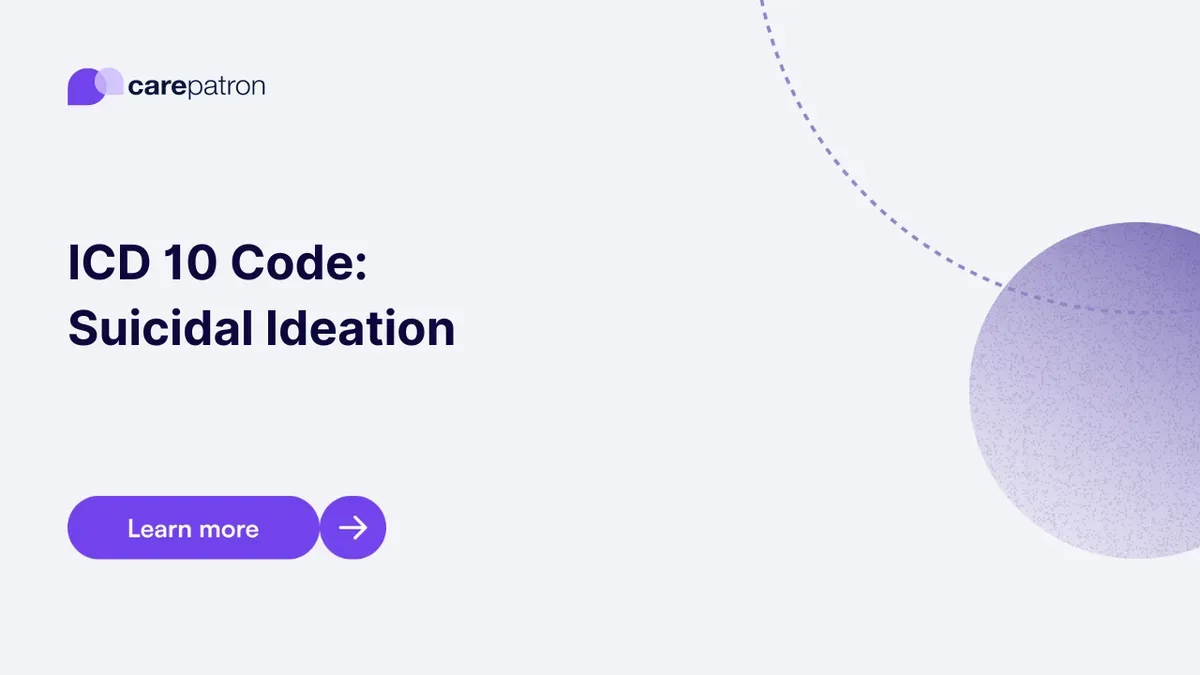
Suicidal Ideation ICD-10-CM Codes
Explore ICD-10-CM codes for suicidal ideation in 2023. Learn about common codes, billable statuses, and gain clinical insights in this comprehensive guide.
Use Code
Commonly asked questions
No, suicidal ideation involves thoughts or fantasies of self-harm, while a suicide attempt involves taking action to end one's life. Suicidal ideation is a critical warning sign of potential self-harm and should be taken seriously.
If you or someone you know is experiencing suicidal ideation, it is crucial to seek immediate help. Contact a mental health professional at a crisis helpline or visit the nearest emergency room for assistance.
Yes, suicidal ideation can be treated through various forms of therapy, including cognitive-behavioral therapy, medication, and support from mental health professionals and loved ones. Early intervention is key to addressing and managing these thoughts effectively.
EHR and practice management software
Get started for free
*No credit card required
Free
$0/usd
Unlimited clients
Telehealth
1GB of storage
Client portal text
Automated billing and online payments
